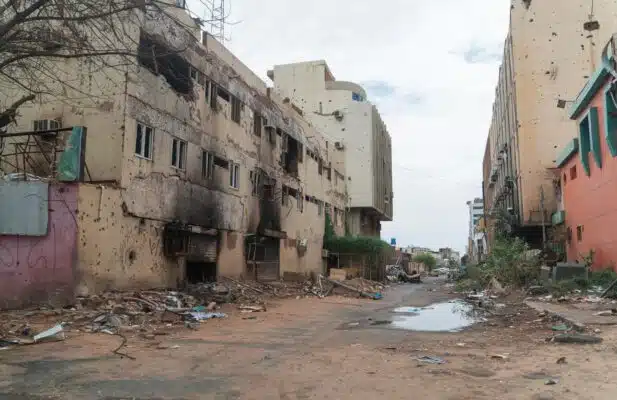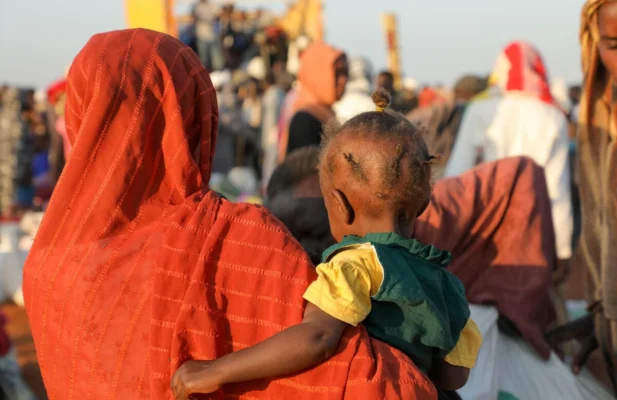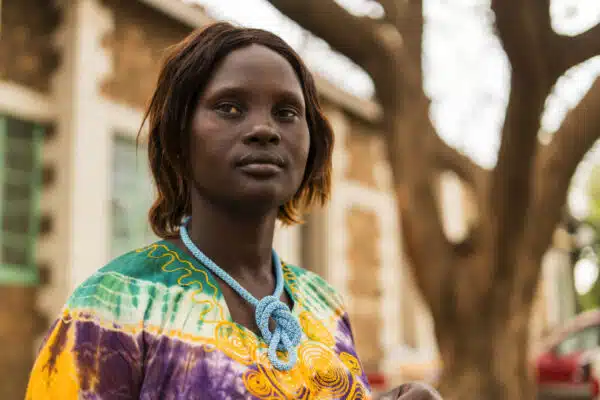
Sudanese new arrivals offload their luggage from a UNHCR truck at the Kiryandongo Reception Centre in northwestern Uganda. © UNHCR/Ssozi Mukasa Daniel
GENEVA – Uganda is on the verge of hosting two million refugees as escalating crises in Sudan, South Sudan and the Democratic Republic of the Congo (DRC) drive hundreds of people to cross the border daily in search of safety and lifesaving aid.
Since the start of 2025, an average of 600 people per day have arrived in the country, with numbers expected to reach two million by year’s end. Already Africa’s largest refugee-hosting country and the third largest globally, Uganda is currently home to 1.93 million refugees, over a million of whom are below the age of 18. Of these, over 48,000 children and adolescents have arrived alone. Yet, the humanitarian response currently faces one of the worst funding crises in decades.
“I met a 16-year-old girl who fled violence in South Sudan and is now caring for her four younger siblings after losing her parents. She dreams of going back to school, but survival is all she can think about. Emergency funding runs out in September. More children will die of malnutrition, more girls will fall victim to sexual violence, and families will be left without shelter or protection unless the world steps up. Uganda has opened its doors, its schools, and its health centers. This model can succeed, but it can’t do it alone,” said Dominique Hyde, Director for External Relations with UNHCR, the UN Refugee Agency, who recently visited refugee settlements hosting Sudanese and South Sudanese in Uganda.
Uganda’s progressive refugee policy allows refugees to live, work, and access public services, but funding shortfalls are drastically impacting aid delivery and threaten to undo years of progress. The cost of addressing the needs of one refugee in Uganda is estimated at approximately $16 per month in 2025. However, unless UNHCR receives more funding, we will only be able to deliver assistance of $5 a month per refugee. As food, water and medicine supplies shrink, rates of malnutrition, especially in children under five, are rising at an alarming pace.
As resources continue to be stretched, refugees are being forced to make life-altering choices to survive, including dropping out of school. Reports of gender violence are on the rise, as well as an increasing risk of suicide among refugee youth amid a decline in mental healthcare staff.
By the end of July, UNHCR only had resources to support less than 18,000 individuals with cash and essential relief items, enough to cover just two months of new arrivals at the current pace.
“War disrupts lives without warning, forcing people to leave everything behind. Many refugees face growing desperation; no resilience can replace what’s been lost. Uganda has shown great generosity, yet the burden should not fall solely on communities far from the conflict. Responsibility lies with those driving and enabling the violence. Peace is the only lasting answer, and until it comes, refugees’ dignity must be protected,” added Hyde.
Currently, Uganda’s refugee response is only 25 per cent funded. UNHCR is calling for more urgent and sustained international support and solidarity, including from development actors, to ensure refugees and their local communities can live safe and more dignified lives.
For more information, please contact:
- In Kampala, Frank Walusimbi, walusimbif@unhcr.org, +256 772 701 140
- In Nairobi (regional), Faith Kasina, kasina@unhcr.org, +254 113 427 094
- In Geneva, Eujin Byun, byun@unhcr.org, +41 79 747 8719
Originally published by UNHCR on 4 August 2025





